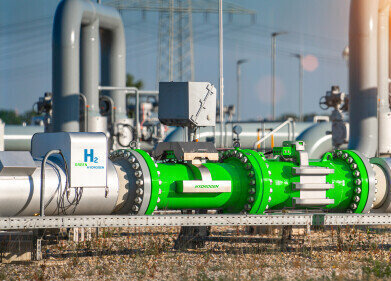Biofuel industry news
Which Countries Are Leading the Energy Transition?
Jul 25 2022
Over the past decade, advances in wind and solar technologies have drastically accelerated the energy transition. This progress has been facilitated by scientific and technological leaps, as well as growing support from governments around the world.
Below, we take a closer look at some of the top performers leading the energy transition:
Sweden
The Energy Transition Index offers some of the most useful data on how different countries shape up when it comes to renewable energy. The benchmark is released by the World Economic Forum, a not-for-profit international organisation dedicated to driving positive change across the globe. According to the latest data, Sweden is the top performing country when it comes to the energy transition. Norway and Denmark bring up the rear with second and third place.
Latvia
All top 10 countries featured in the Energy Transition Index are classed as developed. Latvia, which is categorised as an ‘Emerging and Developing’ European country is the first non-developed nation featured on the list. It appears in 12th position thanks to its impressive hydroelectric capacity. Currently, around 40% of Latvia’s energy consumption demands are met by renewable sources.
France and the UK
Of all the top 10 countries featured in the Energy Transition Index, France and the UK were the only ones classed as major global economies. The UK has set some of the most aggressive and ambitious climate targets, with goals to completely decarbonise the economy by 2050. By 2030, the country plans to slash greenhouse gas emissions by almost 70%, compared to 1990 levels. Investments in wind power, solar power, hydroelectric power and bioenergy will play a critical role in fast-tracking the energy transition and helping the UK meet its net-zero targets.
Iceland
When it comes to renewable energy, Iceland is a top performer. The country generates almost 100% of electricity from renewable sources, including hydropower and geothermal power. Landsvirkjun, Iceland’s national power company, owns most of the country’s hydropower plants. Iceland also steps up as the largest producer of green energy per capita in the world. Every year, the country generates around 55,000 kWh of clean electricity per person. In comparison, EU countries generate less than 6000 kWh per person.
Transforming global energy systems
Despite extraordinary progress, the World Economic Forum stresses that there are still critical challenges to overcome. The Fostering Effective Energy Transition 2021 report states, “this journey is far from over” and maintains there is still a long way to go in terms of transitioning away from fossil fuels and reducing global greenhouse gas emissions. “The transformation of our energy systems needs to increase its momentum to help achieve critical objectives such as the UN’s Sustainable Development Goals and the Paris Agreement,” reads the Executive Summary.
Want to know more about the energy transition. From key factors driving change to the latest biofuel breakthroughs, we cover all the latest developments in ‘Energy Transition Guide - Fossil-based to Biobased Energy Sources’. Or if you want to know more about the latest alternative energy developments, check out the article 'Latest advances in Artificial Photosynthesis: a hidden gem in the realm of alternative energy technologies'.
Digital Edition
PIN 26.1 Feb/Mar 2025
March 2025
Analytical Instrumentation - Elemental Analysis for Quality and Process Control at Refineries, for Lubricants and Wear Metals in Engine Oils - Synthetic Lubricants: New Developments - Scaling...
View all digital editions
Events
Apr 08 2025 Birmingham, UK
Apr 08 2025 Kielce, Poland
Apr 08 2025 Ravenna, Italy
Apr 08 2025 Southampton, UK
Apr 08 2025 London, UK



















